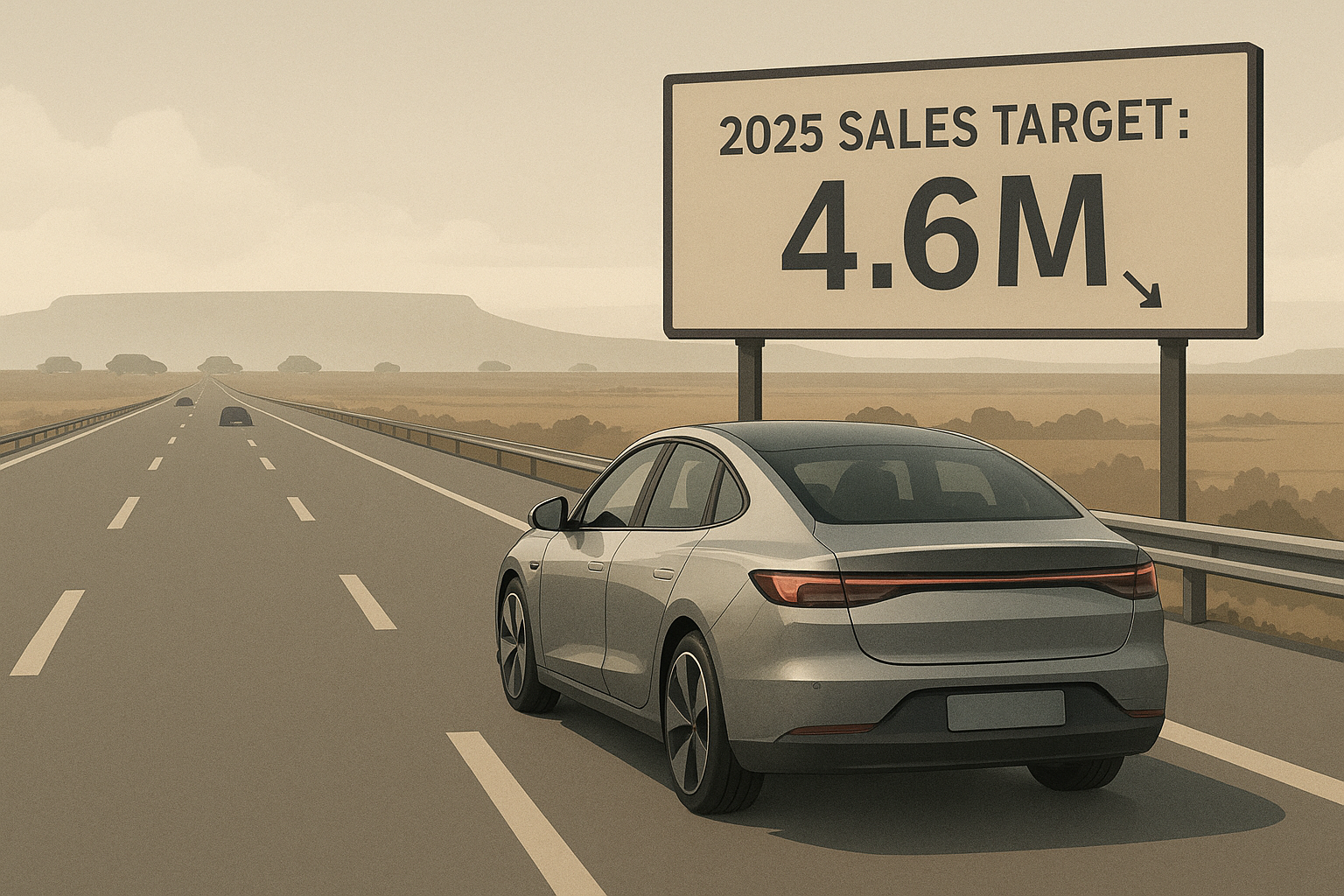Well, it had to happen sometime. BYD—China's electric vehicle powerhouse that's been on an absolute tear for years—is finally showing signs of slowing down. The company has quietly cut its 2025 sales target by 16% to 4.6 million vehicles, according to Reuters sources familiar with the matter.
I've been watching BYD since they were primarily making phone batteries, and this recalibration feels significant. Not catastrophic, mind you, but noteworthy.
Let's be real for a second. A 7% annual growth rate would have most automakers popping champagne in the boardroom. But for BYD? It's their slowest expansion since 2020, when the world was, y'know, dealing with that whole pandemic situation. The company actually saw sales contract that year, if you remember.
This reminds me of what an industry analyst told me over coffee last month: "Companies that rocket upward eventually have to deal with gravity." And he's right. BYD has been burning through capital like a teenager with their first credit card, achieving what business folks call "escape velocity" growth. But the physics of business are unforgiving—even rockets run out of fuel.
The timing here is... interesting. This target reduction comes hot on the heels of BYD reporting a 30% drop in quarterly profit. That's their first decline in over three years. And here's where things get a bit awkward for the company: through August, they've only hit about 52% of their original 5.5 million vehicle target for the year.
(Simple math suggests they were never going to make that number anyway.)
The company hasn't officially explained the cut, but one source mentioned "heat from growing competition" from rivals like Geely and Leapmotor. Translation: China's EV market isn't the green field opportunity it once was—it's become a bloodbath of competition and razor-thin margins.
Having covered the EV industry since the early Tesla days, I've seen this pattern before. Markets tend to believe growth stories will continue indefinitely in a nice, straight line upward. But that's not how business works. Growth follows S-curves—slow start, rapid acceleration, then an inevitable flattening as markets mature and competitors catch up.
So what's next for BYD? The international expansion offers potential, sure. But ask any Chinese company that's tried to replicate domestic success abroad—it's a whole different ballgame. Foreign consumers have different expectations, established loyalties, and sometimes, let's face it, a bit of skepticism about Chinese brands.
For investors who've enjoyed the ride up, this moment requires some soul-searching. BYD remains an impressive operation—churning out millions of vehicles is no small feat!—but the narrative is shifting from "unstoppable growth machine" to "major automaker facing industry headwinds."
And that shift, friends, typically comes with a corresponding change in how Wall Street values your stock.
Look, the irony here is rich. BYD may now need to be evaluated on metrics it could previously wave away—boring stuff like margin stability, capital efficiency, and (gasp) dividend potential. It's like watching your rebellious teenager suddenly develop an interest in retirement accounts.
Welcome to corporate middle age, BYD. Trust me, it happens to the best of 'em.
